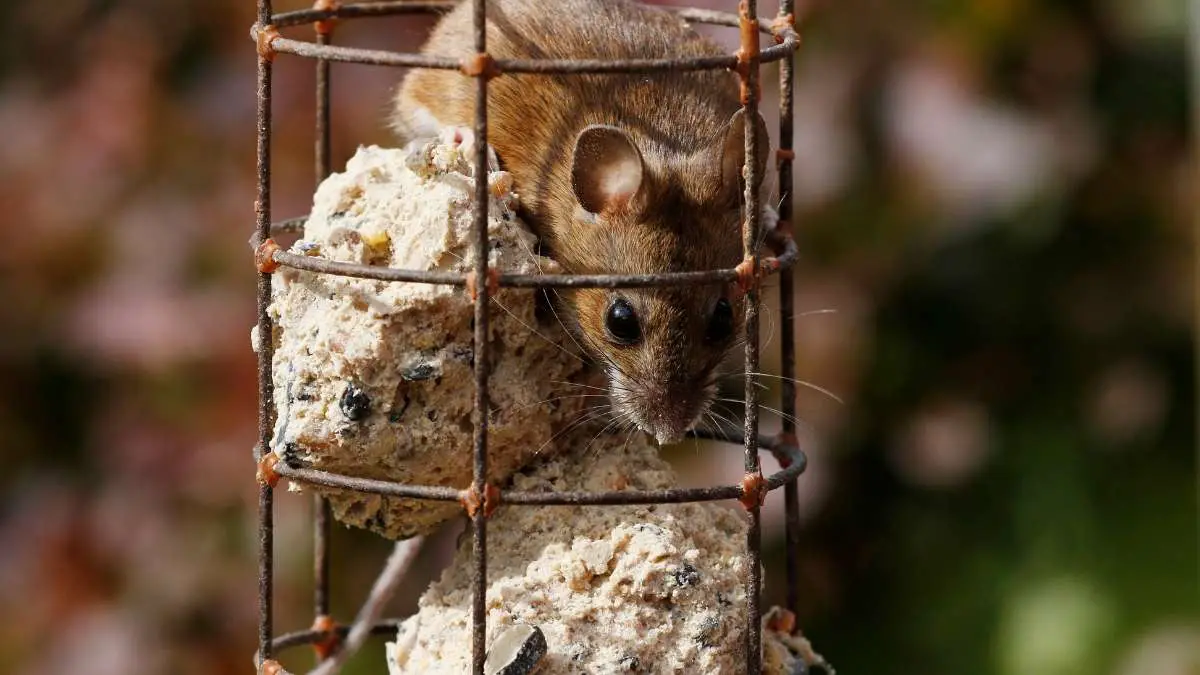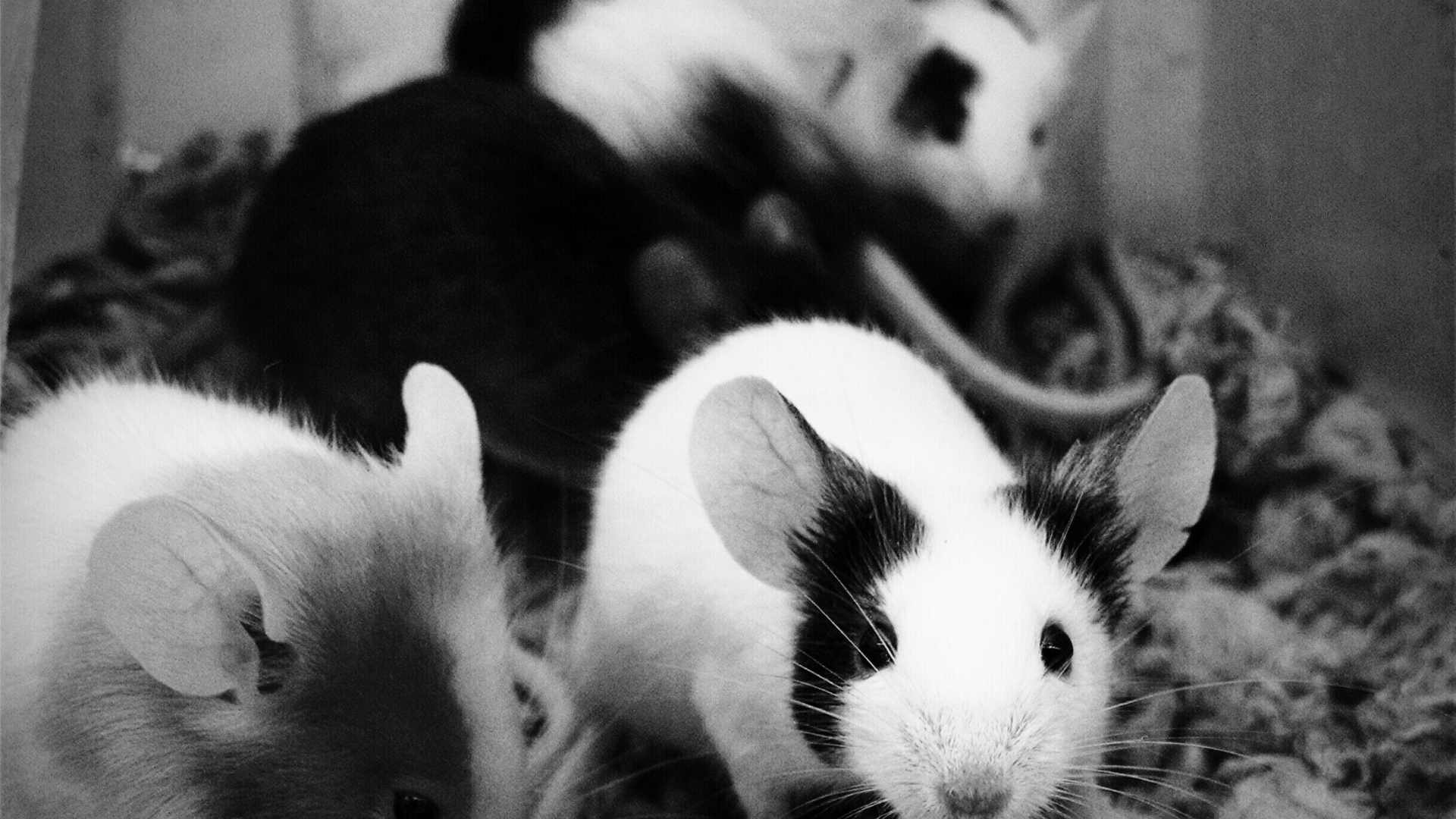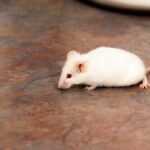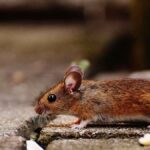Who doesn’t love colorful birds, especially when they flutter and flitter around in our gardens and yards?
Waking up to the chirping sounds of these tiny wonders is a positive start to our day. Various vibrant birds are drawn to bird feeders, from blue jays and cardinals to doves and hummingbirds.
But sadly, birds aren’t the only species interested in your feeders. You will notice that all kinds of rodents, including mice, find their way to this food source.
The first rule of getting rid of mice is not attracting them to your home in the first place!
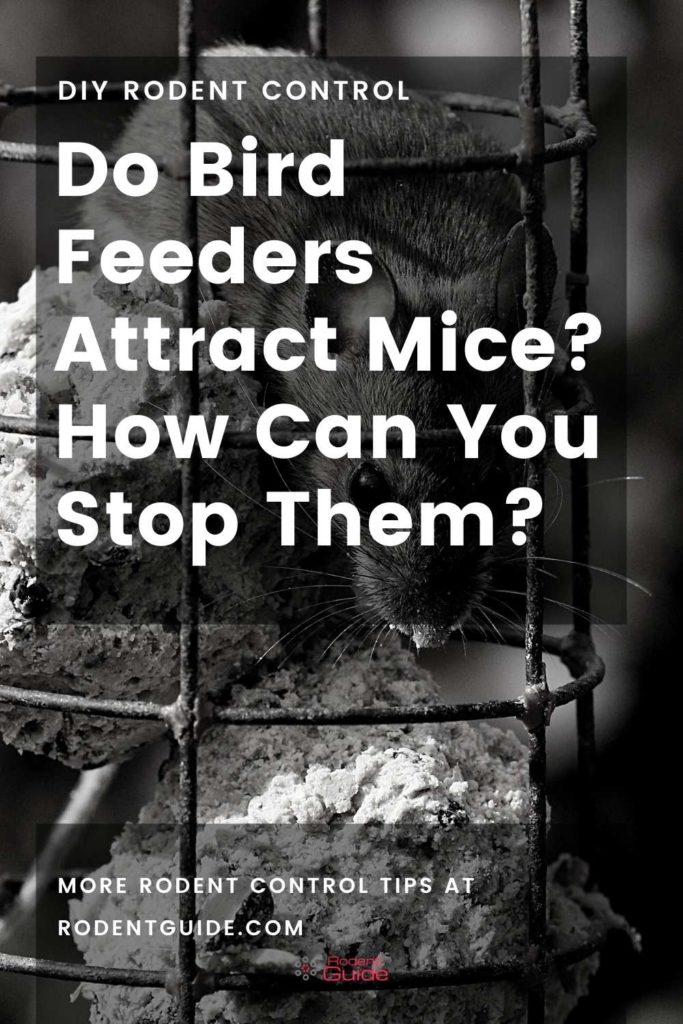
Why do Bird Feeders Attract Mice?
Food, of course. The seeds that fall off the feeders are tempting for rodents such as mice.
These critters, in turn, attract other animal groups, such as reptiles that feed on them. Finally, one day you end up with a yard teeming with undesirable animal species.
Why Are Rodents Like Mice Bad To Have At Your Bird Feeders?
- These mice empty your bird feeders more quickly than you would expect, almost within a few days.
- Mice might be carriers of many diseases.
- Eventually, these will expand their territory and move in with you
- These little troublemakers can get into birdhouses and eat bird eggs
- As mentioned above, they attract other animals to your space, such as snakes, hawks, and feral cats
How To Maintain Your Bird Feeder And Minimize Attracting Mice
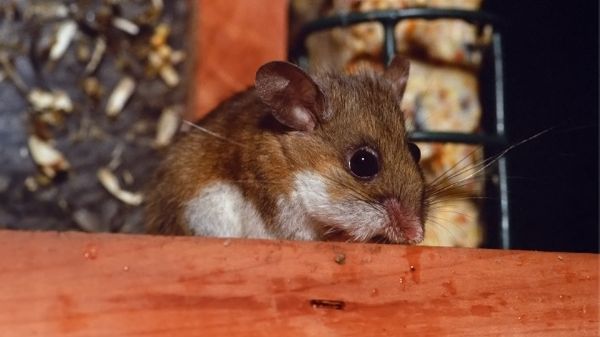
1. Keep your garden and yard clean
Birds love to rummage through their food, tossing around seeds and picking up the ones they like. These messy eaters can cause a mess underneath the feeders. Split seeds, shells, and other titbits under the feeders attract mice and rats.
To prevent this, clean your ground by sweeping the area (especially under the feeder) daily. This method is the key to minimizing mice entry into your garden or yard.
2. Get a rodent-proof feeder
Tossing seeds into a container is an open invitation to mice and rats. Choose a feeder made out of a stronger metal that is tougher to chew through. Getting a hopper style or tube feeder or a squirrel-proof feeder can prevent mice infestation around the bird feeder.
Since mice, rats, and squirrels have similar weights, you can buy a weight-sensitive feeder like the Squirrel buster.
3. Protect your feeder
Mice are good climbers; climbing through trees and wooden poles is as easy as running on the ground. Similarly, they can also access rough surfaces such as brick and stone.
They can leap from heights (as high as two stories) and land on the ground without getting hurt. They can again jump horizontally for a few feet. So hanging a feeder from a tree will not keep the mice away.
You can place your feeder on a pole but use a smooth metal pole instead of a wooden pole since a smooth surface will make it harder for them to gain footing and climb.
4. Offer your birds seeds that mice aren’t interested in
Mice and most rodents aren’t big fans of thistle seeds, but neither are all birds. So if you don’t mind limiting the variety of birds in your yard, this is an excellent option to prevent rodents.
And if you are thinking of trying out this technique, get a thistle feeder instead of a regular one. We would also recommend one made of metal instead of a fabric thistle feeder since mice can chew through it to see what’s inside. Another mice repellent is spices.
Rodents have sensitive noses and cannot tolerate spices such as hot peppers, whereas birds don’t seem to be affected by spices.
You can look for a hot pepper seed mix, hot pepper suet, or even add hot pepper oil to the seeds, making it less appealing to the other animals.
5. Store your seed supply away from mice
We have talked about protecting your feeder, but what about the sack of seed supply? You must be aware that mice can chew through bags of seed supply in no time.
So never store them in your yard or anywhere mice can access them.
Put them inside metal or glass containers and keep them inside your house. A tight lid is a must.
6. Keep your ground open
It means don’t keep a high bed cover. Mice like to sneak around, so an open ground is not ideal for them. It also makes them defenseless to predators like cats, hawks, and other larger animals.
Here are some tips to follow:
- Keep the area under the feeder open without any ground cover. You can replace grass with stones.
- Keep your yard and garden properly landscaped with very short grass
- Place your feeder far away, at least 30 feet away from any cover or shelter
- Keep the trees and bushes trimmed so that mice won’t be able to hide underneath them
7. Grow peppermint
This is one of the most tried and tested methods and also the most successful one. Mice and rats hate the smell of strong mint. You can grow peppermint in your yard. Otherwise, you can spray peppermint oil in your yard, especially around the feeding area.
Mix peppermint oil and water in a 1:10 or 1:20 ratio in a sprayer. Spray this mix in all the problem areas, including your house’s foundation, deck, and the lower part of your bird feeder.
You can reapply this mix as needed.
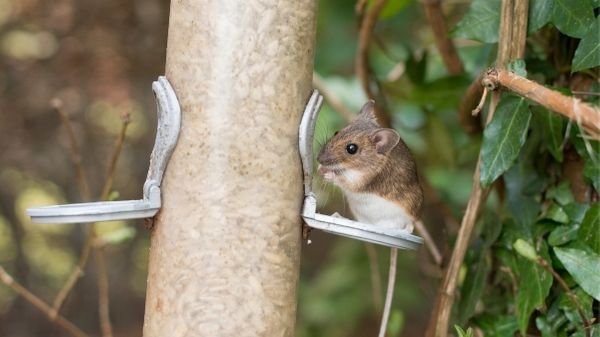
Conclusion
Keeping mice away from your bird feeder will be a huge challenge!
If none of those solutions mentioned above are working for you, then it’s time to get down and dirty! You can set traps around the yard that will capture the rodents in your yard.
You can hire professionals if you are not comfortable doing it alone. They have better expertise and experience and quickly get rid of the mice problem.
A bird feeder has disadvantages, but whether you want one is a personal choice. But you can experiment with the techniques mentioned in this article to prevent mice in your yard.
Good luck!

